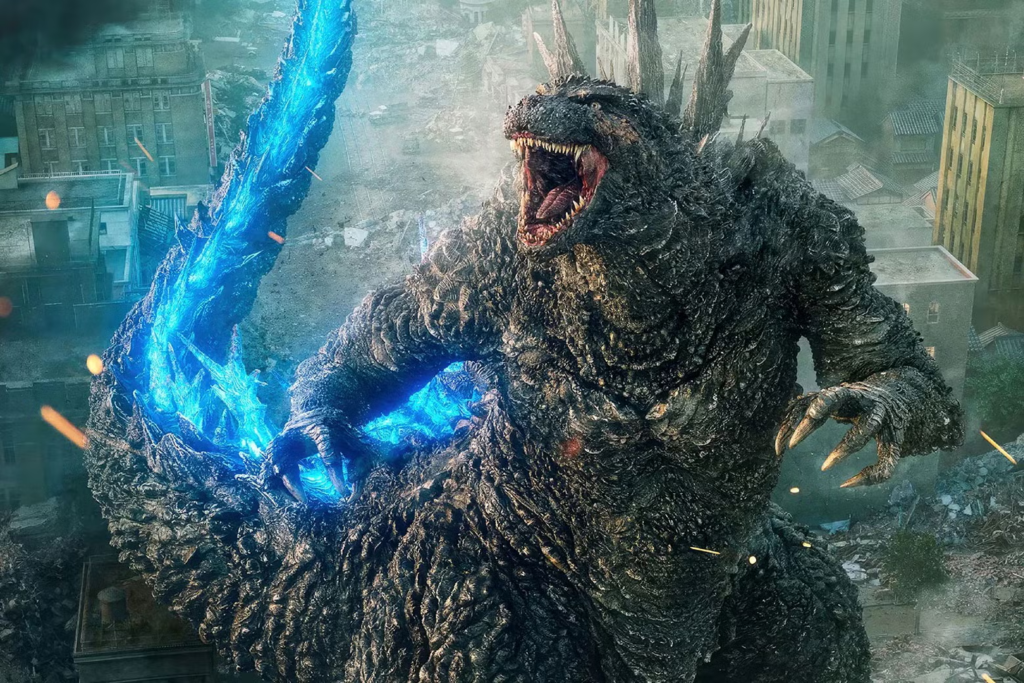Godzilla Minus One: A Post-War Tragedy
The Psychological Aftermath of War
Godzilla Minus One delves deep into the psychological and emotional scars left by the atomic bombings of Hiroshima and Nagasaki. The film offers a poignant exploration of post-war Japan, a nation still grappling with the trauma of this devastating event.

Koichi’s Redemption Arc
At the heart of the narrative is Koichi, a former kamikaze pilot haunted by his past. His personal journey mirrors the nation’s collective trauma, as both seek redemption and a path forward in the face of overwhelming adversity.
A Masterclass in Understated Storytelling
Yamazaki’s film is a masterclass in understated storytelling. Rather than relying on explosive action sequences, he focuses on the human element, building empathy for the characters and their struggles. The titular monster, while a formidable force of nature, takes a backseat to the exploration of human resilience and the enduring power of hope.
A Stark Reminder of War’s Consequences
Godzilla Minus One serves as a stark reminder of the enduring consequences of war. The film’s portrayal of the devastation caused by Godzilla is both horrifying and thought-provoking. It acts as a cautionary tale about the dangers of nuclear weapons and the potential for catastrophic destruction.
A Testament to the Enduring Power of Hope
In conclusion, Godzilla Minus One is a powerful and moving film that transcends the traditional monster movie genre. By focusing on the human cost of war and the enduring power of hope, Yamazaki has created a work of art that will resonate with audiences long after the credits roll. It is a testament to the enduring legacy of the Godzilla franchise and a poignant exploration of the human condition.




















